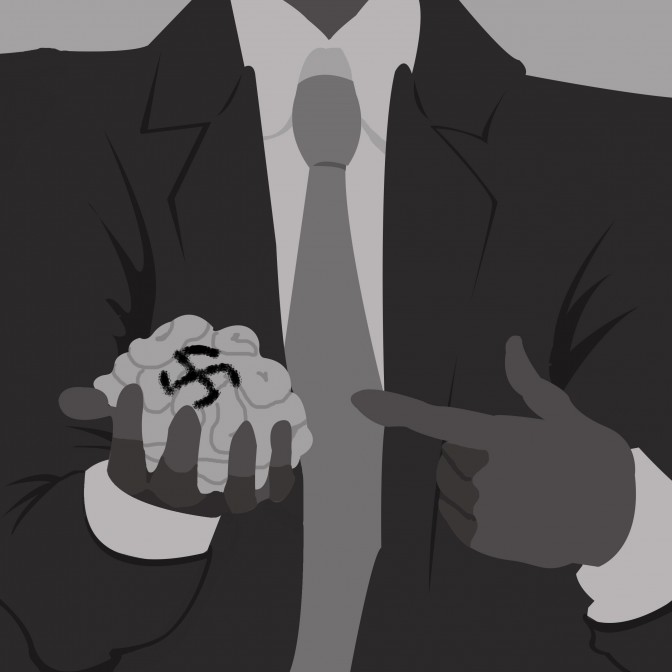Retired neurosurgeon Ben Carson’s gentlemanly, soft-spoken demeanor and self-made American success story make him a compelling GOP candidate.
Politico has deemed him a “superior outsider,” a rare character who has never held political office, yet compels voters with his relatability, while also providing stark contrast to his counterparts of self-aggrandizing business-people and policy-oriented senators and governors.
However, as the 2016 GOP presidential campaigns evolve past standard campaign pledges to fix the whole country [while not raising taxes at any cost], Carson’s rhetoric has strayed surprisingly far from the polite dignity voters associated with him, into a realm that competes with GOP front-runner Donald Trump’s in its inappropriateness under the guise of “political incorrectness.”
Carson recently offended by suggesting, only a few days after the shooting at Umpqua Community College in Oregon, how he felt that potential victims of future attacks should protect themselves by rushing towards the shooter. He said on Fox News that he “would not just stand there and let them shoot me. I would say, ‘Hey guys, everybody attack him. He may shoot me, but he can’t get us all!’”
His approach is basically the opposite of what endorsed by the Department of Homeland Security and actual law enforcement when it comes to keeping yourself safe in a situation with a shooter. After offending a survivor of the shooting with his remarks, he backtracked to clarify that he “was not judging [the shooting victims] at all.” Though his suggestions for better securing schools did shortly thereafter also call for the training and arming of kindergarten teachers.
The presidential candidate has also imaginatively tied his support of the Second Amendment to a particular analogy, that of Nazi Germany.
“I think the likelihood of Hitler being able to accomplish his goals would have been greatly diminished if the people had been armed,” he said to CNN’s Wolf Blitzer. “I’m telling you there is a reason these dictatorial people take guns first.”
The Anti-Defamation League issued a statement in response, pointing out that Carson’s claim was historically inaccurate. They pointed out, “the small number of personal firearms available to Germany’s Jews in 1938 could in no way have stopped the totalitarian power of the Nazi German state.”
Carson dismissed their fact-based rebuttal as “total foolishness,” and has since continued to draw examples of tyranny from Nazi Germany that he intends to combat in the United States should he become president.
He has also used Nazis as a deterrent in his case to mobilize people, telling a crowd, “There comes a time when people with values simply have to stand up. Think about Nazi Germany.” His defense is fervent, that he’s using the analogy to underscore how important it is for the people to speak up. Carson loves to talk about Nazis. So much so that his campaign manager Barry Bennett told ABC News that, yes he would prefer it if Carson would find a different historical example to draw from. Bennett mused that it was possible that, “The example is too powerful perhaps…”
The neurosurgeon has also somewhat distanced himself from the scientific community, or at least 97 percent of it, when he rejected he science on climate change. Carson, fond of recalling that five physicians signed the Declaration of Independence, told NBC’s Chuck Todd that religion not only coexisted peacefully with his scientific practice but it was essential. It helped him draw the line between what was science and what was, “propaganda.”
While experts have speculated that Carson’s inflammatory remarks would hurt his chances in the polls, much like Trump’s, they’ve had the opposite effect. Journalist Trip Gabriel of the New York Times pointed out that some of Carson’s most uninformed and insensitive statements have caused the steepest jumps in his approval rating. The candidate famously remarked on NBC’s ”Meet the Press” that not only was a president’s faith relevant to his governance, but that he would not be comfortable with a Muslim president.
Since then, Muslim and Christian groups have protested their disagreement with the prejudiced generalization, but Gabriel found that following these controversial remarks “his campaign has watched grass-roots support grow and donations pour in – and advisers have backtracked, deciding in the words of one, to ‘let Carson be Carson.’” On the subject of individual freedom, especially, Carson has become undeniably popular with crowds.
Like Trump, Carson has mastered the disregard of the critic. No matter how ignorant his statements may be, he’s become impressively unwilling to back down.






